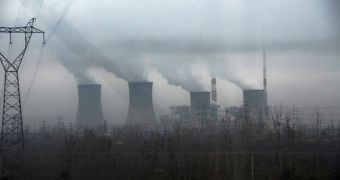According to a new research paper published this week in the British journal Environmental Conservation, it would appear that people who live in, or move to, big cities tend to care more about Earth and the environment than others who don't live in metropolises.
The research was conducted so that authorities could get an idea of the environmental behavior characterizing China, and this is the first time ever a research team took into account factors such as employment and leadership when assessing such behavior.
After analyzing corporations based in Beijing, Shanghai and Tianjin, the research team noticed that the status and political power these companies displayed were playing a significant role in the conservation practices shown by their employees.
In the study, it became clear that most of the employees these corporations had tended to be very actively involved in direct, green actions, such as for example sorting trash for recycling, or taking part in environment-related litigations.
The research effort was led by scientists at the Michigan State University (MSU) Center for Systems Integration and Sustainability (CSIS), who worked together with colleagues from the US and China.
“Employment matters with regard to pro-environmental behavior due to many different reasons. First, people may be affected by peers in their workplace through the diffusion of environmental values,” says Xiaodong Chen.
“Second, some pro-environmental behaviors need facilitating support such as equipment for classifying garbage or social groups who can organize these activities. Employment settings sometimes provide such support,” he adds.
The expert was the leader of the new study, which was carried out when he was still a PhD candidate in sustainability science at the MSU. Chen says that his group analyzed data from the General Social Survey of 2003 to tease out the discoveries.
This particular Chinese survey was applied to 5,000 respondents, who were questioned about their behavior in regards to the environment, and also about their workplace.
“It is essential to study human behavior because behavior directly affects the environment,” explains paper coauthor Jianguo Liu, who is also the director of the CSIS.
“As China is the world's fastest growing economy and cities are the economic engines with severe environmental challenges, understanding environmental behavior of urban residents in China is particularly important,” he adds.
This research was partially funded by the Program on Dynamics of Coupled Natural and Human Systems at the US National Science Foundation (NSF).

 14 DAY TRIAL //
14 DAY TRIAL //